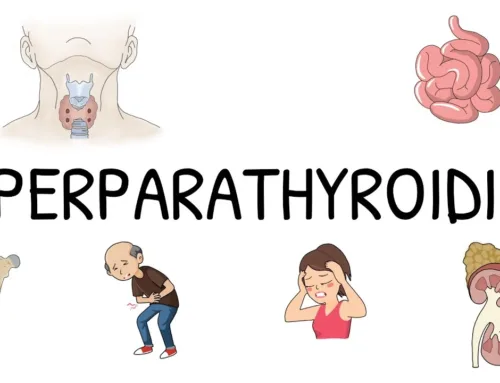The pituitary gland is a small structure that sits at the base of the brain and produces hormones. The hypothalamus, a part of the brain, controls the production of these hormones. The pituitary gland has two lobes: anterior and posterior. Hormones produced by each lobe have different roles in maintaining homeostasis (balance) within our bodies.

Pituitary gland
The pituitary gland is a pea-sized structure located at the base of your brain. It produces hormones that control several bodily functions, including growth and development, metabolism, and reproduction.
The hypothalamus is another part of your brain that helps regulate hormone production by releasing gonadotropin-releasing hormone (GnRH). GnRH travels down to an area called the pituitary portal system, where it stimulates another hormone called luteinizing hormone (LH), which then travels to an egg within one of your ovaries to stimulate the production of estrogen or progesterone depending on whether you are having a menstrual cycle or pregnancy respectively.
The pituitary gland produces various hormones and enzymes.
The pituitary gland produces various hormones and enzymes. Hormones are chemical messengers that carry information between cells. Enzymes are proteins that help regulate the body by breaking down food or reacting with other substances in the blood.
The hypothalamus controls the secretion of most of these hormones and enzymes; however, some pituitary functions can be controlled by other parts of your brain–such as dopamine production from neurons in an area called substantia nigra pars compacta (SNpc).
Enzymes produced by the pituitary gland
The pituitary gland produces two enzymes important in the production of plasmin: plasminogen activator (PA), which cleaves plasminogen to form plasmin, and tissue PA. Plasmin is an enzyme that digests the body’s fibrin clots and other proteins.
The primary function of PA is to activate plasminogen into its active form to digest fibrin clots. In addition, some studies suggest that PA may play a role in the immune system by helping move white blood cells around the body.
Plasminogen activator (PA)
A Plasminogen activator (PA) is a glycoprotein that activates plasminogen. Plasminogen is a serine protease that cleaves fibrinogen, a component of the blood clot.
Two known types of PA: Urokinase and so-called tissue PA
The pituitary gland is a small organ located at the base of your brain. It produces hormones that help regulate many important processes in your body, including growth and development.
There are two known types of PA: Urokinase and tissue PA, also known as tissue kallikrein. The liver produces Urokinase; tissue PA can be found throughout the body, including the placenta (the organ that connects an unborn child to its mother).
Isolated pituitary hormones
The pituitary gland produces several hormones, including:
- Prolactin
- Growth hormone (GH)
- Thyroid-stimulating hormone (TSH) and thyroid hormones (T3 and T4)
- Adrenocorticotropic hormone (ACTH) stimulates the adrenal cortex to produce cortisol in response to stress or injury.
It also produces oxytocin and vasopressin as part of its role in regulating water balance within the body, such as during pregnancy when increased levels of both hormones are needed for breastfeeding mothers’ milk production.
Pituitary hormones that are secreted together
- Growth hormone
- Prolactin
- Thyroid-stimulating hormone (TSH)
- Luteinizing hormone (LH)
Role of the pituitary gland in the human body.
The pituitary gland is a small organ at the base of your brain. It’s attached to your hypothalamus by a stalk, which allows it to send messages to this part of your brain.
The pituitary gland produces hormones that control other glands in your body, including:
- Adrenal glands – produce adrenaline and cortisol
- Thyroid gland – produces thyroxine (T4) and triiodothyronine (T3), which help regulate metabolism and growth
It also produces growth hormone and prolactin, two important hormones for reproduction and development.
Conclusion
The pituitary gland is an important part of your endocrine system, which produces hormones that regulate many of your body’s functions. It’s located at the base of your brain and sends signals to other glands in the body, like the thyroid and adrenal glands.




Leave A Comment